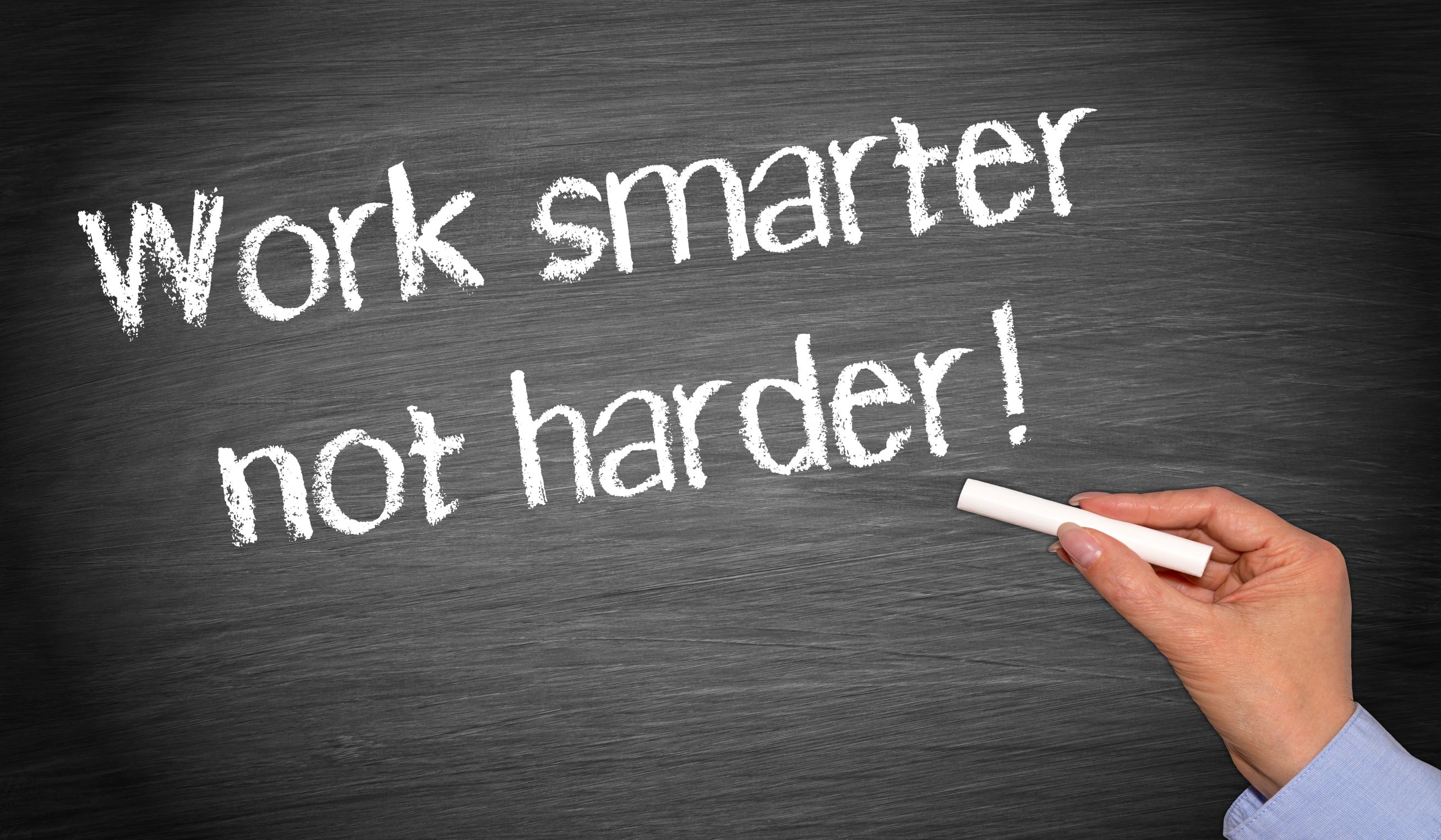 Fundraising productivity is not just about how much you can get done to raise money.
Fundraising productivity is not just about how much you can get done to raise money.
It’s about being strategic and focusing on the RIGHT activities.
It’s also about creating effective systems and workflows so that you aren’t pushing through your day trying to get as much as possible done, because, yuck.
The truth is that there will never be enough time to get everything done in a day.
Your time is your most precious resource. You must guard it carefully and use it wisely.
If you don’t plan your day and purposefully choose what to work on, you’ll spend your whole day fighting fires and maybe never work on the things that can help your nonprofit grow.
That means you’ll stay right where you are.
I doubt that’s what you want, so let’s look at 12 hacks that can keep you focused, save you time, and increase your fundraising productivity.
12 Fundraising Productivity Hacks
1. Find and plug the time leaks. Time leaks are those things that suck your time, sometimes without you noticing. Things like conversations with coworkers that last longer than they need to, writing the same email over and over instead of using a template, and meetings that don’t start or end on time can steal time from your day that you can never get back.
The best way to find the time leaks is with a time study. For two weeks, write down EVERYTHING you do and how long each task takes. I know it seems like you’ll be adding yet another item to your to-do list, but this short-term task can be incredibly illuminating. You’ll see very quickly where you’re spending way too much time or… where you’re spending your time out of habit instead of working on purpose. You’ll be able to identify and eliminate unproductive tasks that are sucking your time.
Time tracking doesn’t have to be fancy. You just need to be able to log your daily activities and how much time you spend on each one. You can use pencil and paper, an Excel document, or an online tool like Clockify which lets you click ‘Start’ and ‘Stop’ every time you begin or end an activity. Yes, it takes a little time initially to remember to record your time, but what you’ll learn about how you work is invaluable.
Personally, I tend to resist doing a time study, and the way I get myself to do it is to imagine that I’m being paid for every minute I spend working. But I need an accurate list of tasks and time to submit a correct invoice. That helps me remember to click start and stop (I use Clockify).
My most recent time study showed that most everything on my to do list takes me longer than I think it will, and that’s why I never finish my task list for the day. I started allotting myself time for certain activities like posting on social media and setting a hard stop when the time is up. I also saw that I wasn’t setting aside enough time for writing, trying to squeeze it in between appointments, which doesn’t give me the time I need to think and be creative. My time study has helped me be more purposeful about how I spend my working time and stop doing things that aren’t productive. Your time study may show you some similar problems or work habits that you can change, too.
2. Organize your to-do’s in a single list. Time spent searching is time wasted. Disorganization can cause you to lose donors, miss grant deadlines, and fall short of revenue goals. Plus, it’s just frustrating to constantly on the hunt for a note or a phone number.
Keeping a task list can save you time and clear your mind. Tons of paper and sticky notes all over your desk not only distracts you, but it makes you look (and feel) unprofessional. So, find a system for keeping all your to do items in one place, whether that’s on a piece of paper, in a notebook, in a Word file, or somewhere else. That way, when a coworker sends you an email asking for a report, you get a request for a speaking gig, or a donor calls with a concern, you 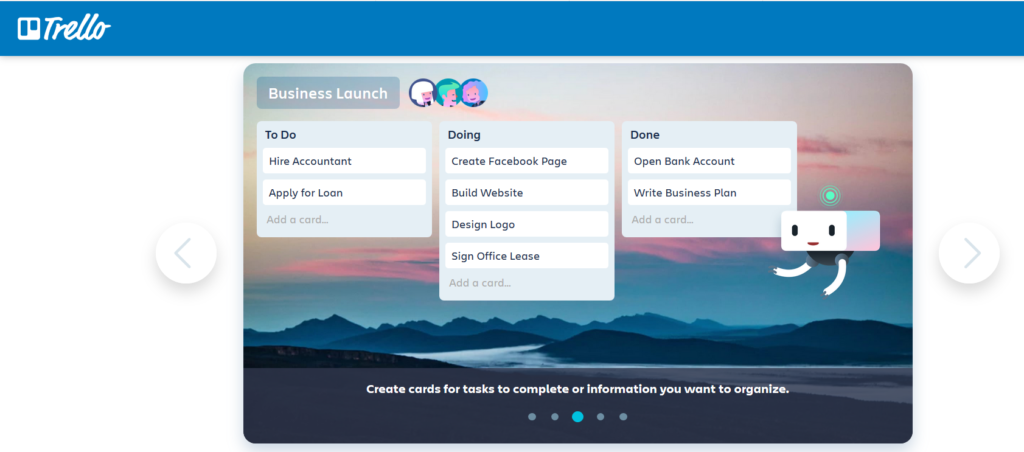 have ONE place to store your action items so you can prioritize them and get them done on time.
have ONE place to store your action items so you can prioritize them and get them done on time.
Our team at Get Fully Funded uses Trello to manage our individual to do lists plus all our team projects. Trello is very user friendly and lets you share lists with team members, color code tasks, and set due dates for individual items. There are places to create checklists, add notes, and create templates for tasks that are repetitive. We love it and it has completely changed the game for keeping us all organized. Start with the free version to see if you like it.
3. Time-block your week with an online calendar. Using an online calendar like Google Calendar can be great for planning out your time because you can see your day, week, or month at a glance, and access it from either your desktop or mobile device. And if you share your online calendar with your team, they can see when you’re busy or help you set appointments.
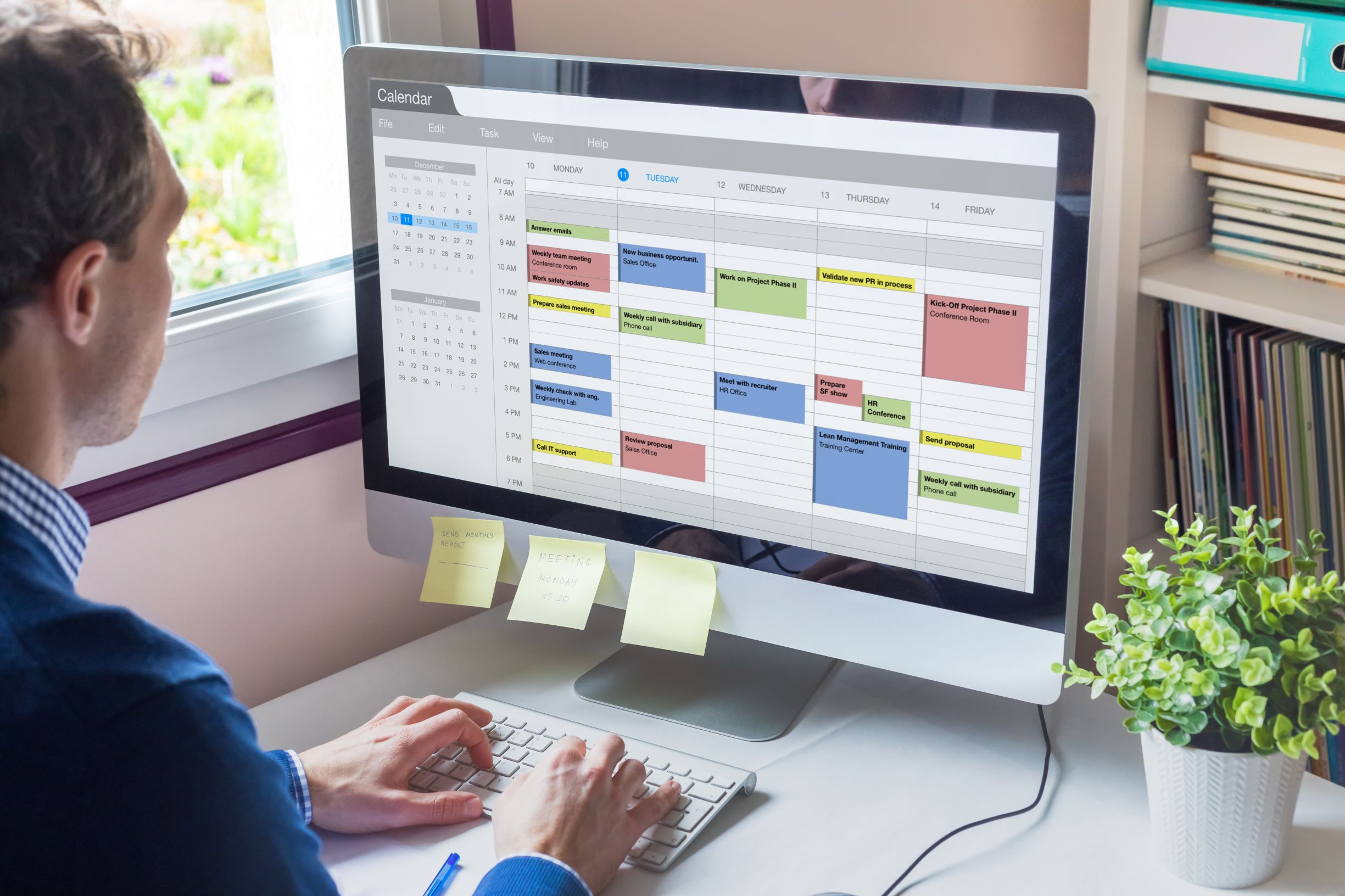 The real benefit of using a calendar is block scheduling. Set aside a couple of hours for similar tasks so they get done in a “batch.” By batching calls or writing, you can actually be more productive since your mind is already in the mode for getting that kind of task done. And if you don’t really like being on the phone, you can get those pesky calls done and out of the way, freeing up brain power for the rest of the day.
The real benefit of using a calendar is block scheduling. Set aside a couple of hours for similar tasks so they get done in a “batch.” By batching calls or writing, you can actually be more productive since your mind is already in the mode for getting that kind of task done. And if you don’t really like being on the phone, you can get those pesky calls done and out of the way, freeing up brain power for the rest of the day.
The trick to block scheduling is to hold the block and don’t schedule something over top of it. Think of that block of time as an appointment with yourself that you can’t break. Find another time for that call so you don’t lose the block of time you need to get that batch of tasks done.
4. Prioritize the important tasks FIRST. In his popular book “Eat That Frog!”, author Brian Tracy suggests you should identify the most important thing you need to get done during the day and do it first, especially if you dread it. If the worst thing you have to do today is to eat a frog, you may as well get it over with. The rest of the day will be easier.
Now, I don’t know about you, but eating frogs is not on my task list today! But there ARE huge, daunting projects and articles I need to write that I feel stumped about, and other very challenging activities that require a lot of creativity and brain power. It’s best to prioritize your list each day so the really important things – the things that can help you grow your nonprofit – get the time and attention they deserve. If you don’t carve out time for them, you’ll never get around to them, and that will ultimately keep you stuck where you are.
Plus, most people are freshest in the morning. For me, tackling hard projects is easier when my creativity tank is full and that’s usually before tons of meetings, calls, and managing my email (which is a whole problem by itself).
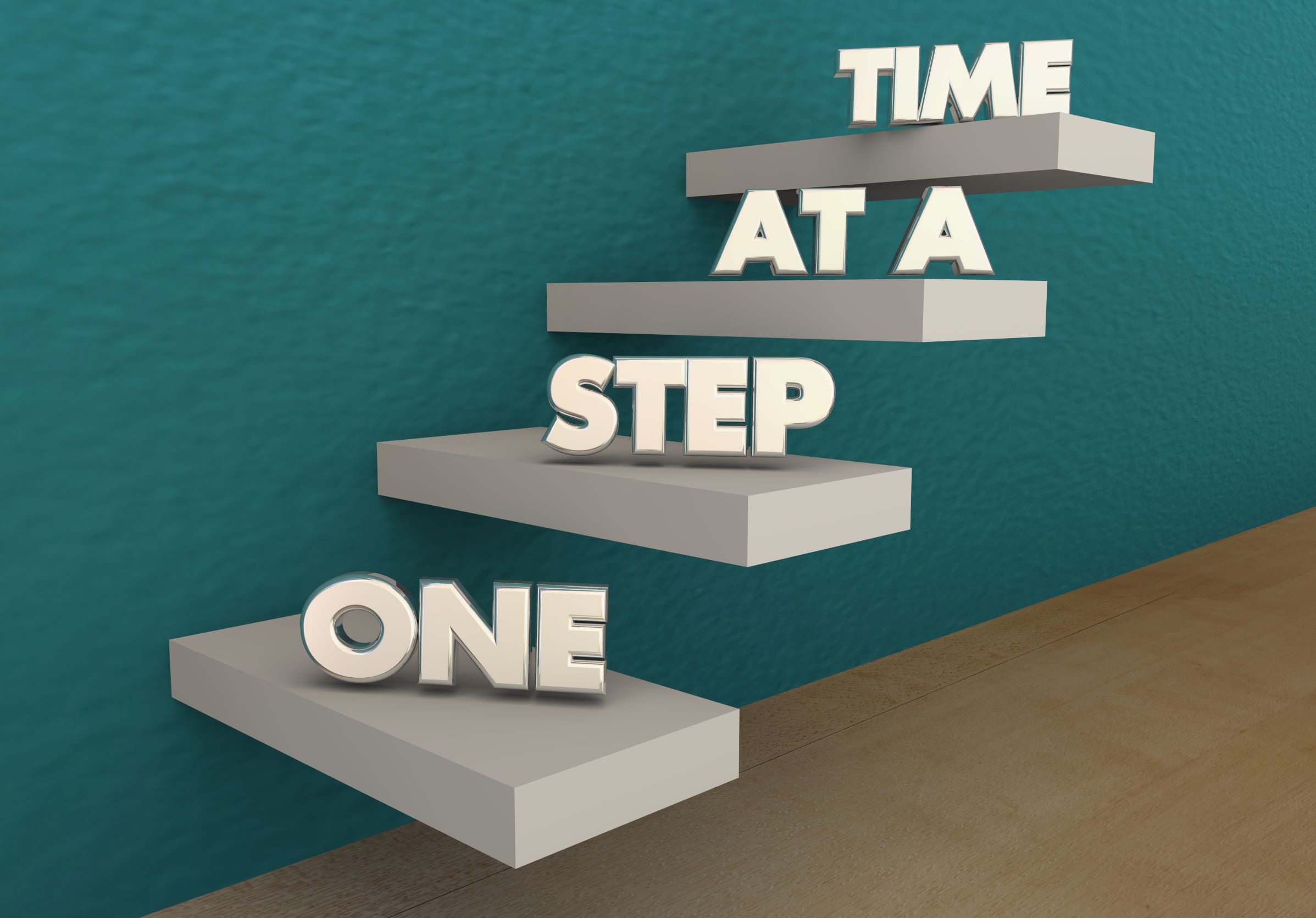 5. Break down big projects into smaller bites. Procrastination happens when we aren’t sure what to do next. And when you put something like “Update the website” on your to do list, it’ll get ignored and bumped to tomorrow, every time. The problem is that “Update the website” is too big of a project and your mind doesn’t know where to start. But if you break it down into smaller tasks like “Change the photo on the About page to the new team photo,” it’s much more manageable.
5. Break down big projects into smaller bites. Procrastination happens when we aren’t sure what to do next. And when you put something like “Update the website” on your to do list, it’ll get ignored and bumped to tomorrow, every time. The problem is that “Update the website” is too big of a project and your mind doesn’t know where to start. But if you break it down into smaller tasks like “Change the photo on the About page to the new team photo,” it’s much more manageable.
Always break large, intimidating projects down into the smallest steps you can think of. This is a simple strategy, but it works.
6. Give yourself dopamine snacks. Are you the person who does something, realizes it wasn’t on the list, then writes it on the list just so you can mark it off? Mm hmmm. You’re giving yourself a dopamine snack.
Dopamine is a chemical released in the brain when you mark that item off the list, making you happy. Subconsciously, we like how that feels, so we look for other quick things we can complete and mark off the list, too.
As Founders and leaders of nonprofits with lots of big projects and lots of complex, creative tasks, we don’t get a lot of dopamine during the day. That’s why breaking big projects into smaller tasks is so helpful. It’s less overwhelming and gives us a chance to reward our brains with a dopamine snack. Look for ways you can give yourself the chance to do little tasks throughout the day to get that feeling of completion.
7. Don’t try to do everything. There are dozens of tasks that need to get done today in your nonprofit. And you can’t do it all. Not only do you not have the time to do everything, you’re not good at everything. So, focus on ONLY those things that you’re good at and delegate, automate, or eliminate the rest.
Watch this 6.5 minute video where I show you a fun exercise to find out what you should do and what you should STOP doing every day.
8. Delegate the things you shouldn’t be doing. If you want to free up time fast, find someone to help you get stuff done, especially things you don’t need to be doing in the first place.
Several years ago, I was coaching the CEO of an $11-million dollar nonprofit. He told me their janitor had just retired and instead of replacing him, he decided that he and his VP of Development would split the job between them. WHAT??? The two top fundraisers in the organization were going to take turns cleaning the toilets! Talk about doing things you shouldn’t be doing! I’m sure they could get a volunteer to help or pay someone a couple hundred dollars a month to clean the office. They were losing more money than that doing it themselves because they could have used that same time to cultivate a major donor and potentially gotten a $10,000 donation (or more!).
Delegating isn’t always easy, but it IS doable for everyone. Start by clearly defining what you need done including any minimum standards for performance. Then start looking for either a volunteer or an intern who can get the work done. There are volunteers out there willing to take on just about anything, including mucking stalls, cleaning kennels, answering the phone, entering data, and yes, cleaning toilets.
Sometimes you need to delegate but you need more skill or commitment than a volunteer can give. That’s when a site like Upwork.com can help you find someone with just the right skillset who can help with a particular project.
 9. Don’t be afraid to say “no.” Saying “no” to unproductive fundraising activities that don’t bring enough return on your investment of time and energy is critical to boosting your fundraising productivity. Saying “no” to things of a lower nature clears space for you to say “yes” to things of a higher nature. You’ll stop the nickel-and-dime fundraising and be able to do things that bring in much more money. You’ll also avoid getting stuck in time crunches especially if you already knee deep in a fundraising event or year-end fundraising campaign.
9. Don’t be afraid to say “no.” Saying “no” to unproductive fundraising activities that don’t bring enough return on your investment of time and energy is critical to boosting your fundraising productivity. Saying “no” to things of a lower nature clears space for you to say “yes” to things of a higher nature. You’ll stop the nickel-and-dime fundraising and be able to do things that bring in much more money. You’ll also avoid getting stuck in time crunches especially if you already knee deep in a fundraising event or year-end fundraising campaign.
Saying “no” can be uncomfortable or downright scary, especially if you’re a people pleaser or if it’s a Board member who has asked you to take on an extra task. Remember that setting boundaries for yourself is your job – no one else will do it for you.
10. Take breaks. Working for hours on end is exhausting and the strain of endless mental work results in headaches, migraines, and worse. It’s tempting to try to push through when your task list is long, but that level of driven-ness can take you to the point of burn-out if not kept in check. So, take a few minutes away from work throughout the day. And no, that doesn’t mean scrolling through social media. Use breaks to give your brain and body a breather. Get up and move around. Stretch. Do some yoga. Just get away from your computer and give your eyes and mind a break.
When the weather is good, we take the office dog out for a quick walk around town about 3 in the afternoon. Our office is downtown Loudon, TN, and walking a few blocks is a fun, social activity. We may wave at the owner of the local theatre, see the latest renovations on the courthouse, or drop off a letter at the post office. (It’s a really small town!)
Taking breaks will clear your mind and help you get re-charged for the next task on your to-do list.
11. Keep your passion kindled. Productivity isn’t just about how much you get done in day or week. It’s about doing what’s meaningful to you. It’s easy to get lost in the day-to-day responsibilities of running a nonprofit. So, whenever you find yourself feeling overwhelmed by your to-do list, try taking some time to go to the front lines of your organization for some hands-on work to remember why you work so hard in the first place.
Or try this exercise: Grab a piece of paper and write down the top 3 reasons why your cause matters to you. Take a moment to go deep on this to get to the real roots of your passion. Once you have it, keep this list where you can see it often to remind yourself of why you care so much.
You can also keep notes from clients or program participants. Let’s say you work for a food pantry and someone who stops by to pick up a food box hands you a heartfelt note to say thank you. Keep these kinds of notes on a bulletin board or somewhere handy so that you can look back on them regularly.
 12. Take time to unplug. Work-life balance is so critically important to your ability to be productive. When the hours during the day don’t seem like enough, it can be easy to justify working late in the evening. But taking time to unplug can help you be even more productive while you are at work.
12. Take time to unplug. Work-life balance is so critically important to your ability to be productive. When the hours during the day don’t seem like enough, it can be easy to justify working late in the evening. But taking time to unplug can help you be even more productive while you are at work.
If you are like most, and struggle to make time in your evenings for yourself, try time-blocking some off time every evening in your calendar. Schedule a couple hours in your evening to enjoy time with your family, read a book, or engage in your hobbies.
Lazy time is not unproductive time. The time you spend binge watching a show or reading a book is not wasted time but time that your brain needs to re-boot.
Our Favorite Fundraising Productivity Tools:
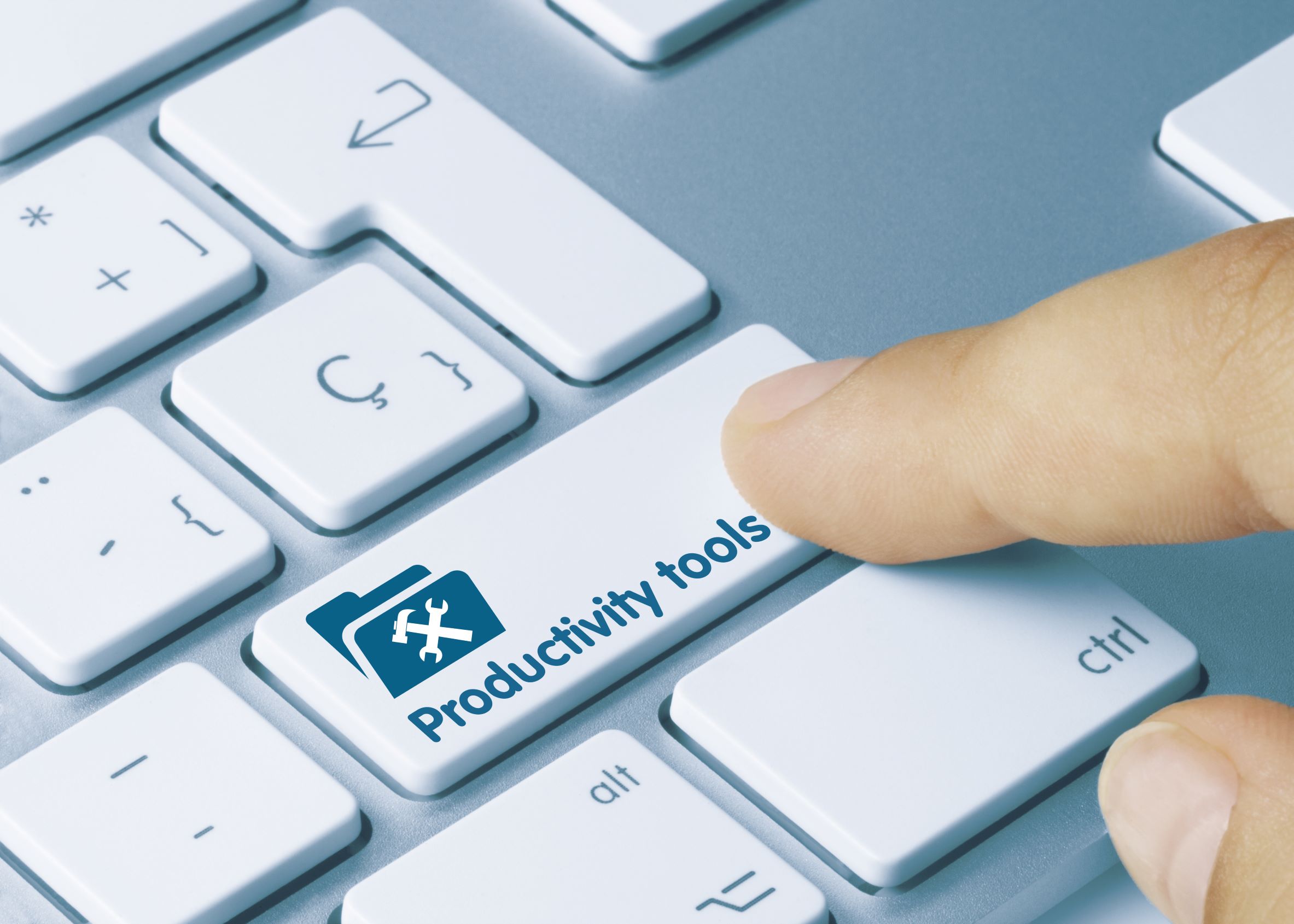 Trello www.Trello.com – For project management, personal task management, and more.
Trello www.Trello.com – For project management, personal task management, and more.
Dropbox www.Dropbox.com – For safe, cloud storage of all your files.
Buffer www.Buffer.com – For scheduling social media posts.
Google docs and sheets www.Google.com – For shareable documents and spreadsheets that multiple users can work on simultaneously.
Google calendar www.Google.com – For online calendar that you can access from your phone or share with your team.
Schedule Once www.oncehub.com – For letting others schedule meetings with you without going back and forth via email.
Grammarly www.Grammarly.com – For checking and optimizing your writing.
Zapier www.zapier.com – For connect tools together.
LastPass www.lastpass.com – For storing all your passwords so you don’t have to remember them.
Pocket www.getpocket.com – For saving content to check out later.
The Bottom Line
You don’t have an unlimited amount of time or energy, so you must use what you have wisely. Follow these 12 fundraising productivity boosters to see if you can find little ways to get back some time during your day that you can use to your benefit.
Other resources
The Practice of Personal Gratitude in Fundraising https://getfullyfunded.com/the-practice-of-personal-gratitude-in-fundraising/
Your Personal Fundraising Success Plan https://getfullyfunded.com/your-personal-fundraising-success-plan/
